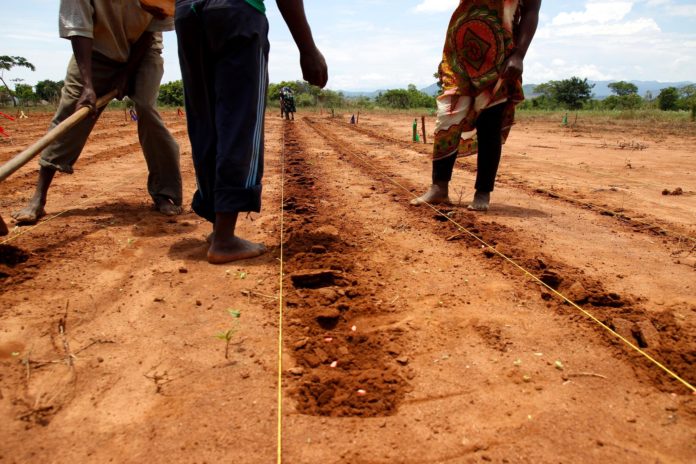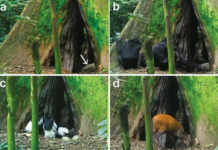By Lawrence Paganga
The onset of rainfall for the 2021/2022 agricultural season has been delayed across most of northern Mozambique and parts of the central and southern regions.
The dry spell has resulted in the withering of crops and forcing other farmers to replant.
According to the latest report by the Famine Early Warning Systems Network (FEWSNET), field informants say farmers are expected to continue planting whenever it rains with the hope of establishing a crop to harvest in April or May this year.
“In late October and early November, moderate to heavy rainfall in Maputo province and southern Gaza province encouraged many households to begin planting; however, dry spells and above-average land surface temperatures in mid-and late November resulted in the withering of crops and households replanting,” FEWSNET said.
“In Zambézia and Tete provinces, moderate to heavy rainfall in mid-November provided a false start to the rainy season.
“However, in southern and much of central Mozambique, crop conditions are likely to improve following sustained rainfall since mid-December.
“Field informants report that farmers are expecting a near-average 2021/2022 agricultural season in southern and central Mozambique following the start of the rains in mid-to-late December.”
However, FEWSNET predicted that in northern Mozambique, cumulative rainfall from October 1, 2020, to January 5, 2022, is likely to be less than 45 percent of 1981-2020.
“Due to above-average temperatures and poor rainfall, vegetation is likely in very poor condition in central and northern Mozambique. Across Mozambique, households are expected to continue planting whenever it rains with the hope of establishing a crop to harvest in April/May 2022.”
According to the National Directorate of Water Resources Management, the Pequenos Libombos Dam, which supplies water to Greater Maputo and the surrounding area, is at 86 percent capacity, while the Massingir and Corumana dams, which supply water to the main irrigated areas in Gaza and Maputo provinces are at 60 and 48 percent capacity, respectively.
“Preliminary data indicate around 1 200 hectares of crops were affected, with around 29 hectares likely to be replanted. The district government activated an emergency plan to support the most affected households.
“The dams in the central and northern regions remain at typical levels supported by rainfall at the end of the last rainy season. The near average to an above-average water supply is expected to support water access for the major cities and irrigation systems in southern Mozambique.”
FEWSNET added based on rainfall received to date and forecast models, below-average rainfall was most likely for December 2021 to March 2022 in northern Mozambique.
“The late onset of effective rainfall is likely to reduce agricultural activity, negatively impacting income from agricultural labour. The late start to the agricultural season is likely to result in a below-average to average crop harvest in 2022.
Most farmers in rural areas remain engaged in agricultural activities, including planting and weeding.
“However, the delay in the effective start of rainfall, particularly in the central region, is likely to delay the start of the green harvest (typically in March) and reduce potential harvests.
“In southern Mozambique, moderate rainfall in the second half of December has helped recover crops following dry spells and above-average temperatures in late November and early December. However, some farmers did have to replant.”
The poor rainfall pattern will force some poor to continue expanding income-earning opportunities and coping strategies to meet their food needs due to a delayed harvest and below-average crop yields.
“In Cabo Delgado, areas affected by conflict will likely remain in crisis as food and income access remains well below pre-conflict levels due to poor engagement.”









